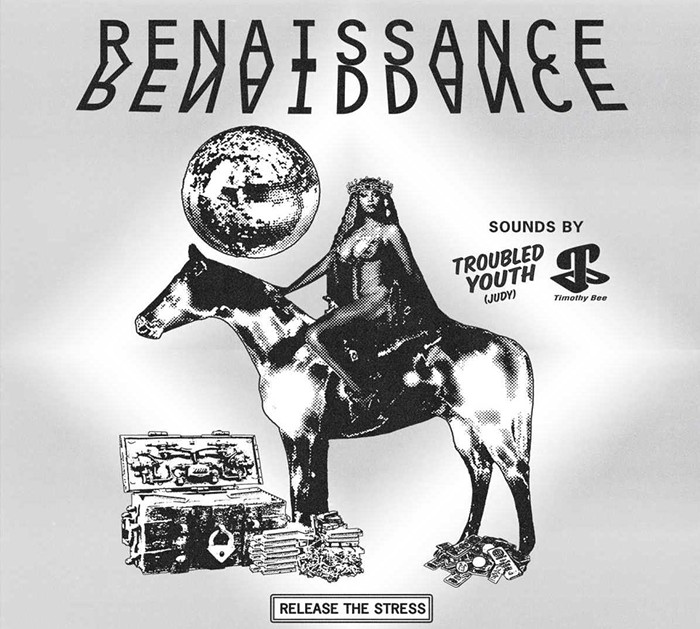Earth
Sat Sept 10
Loveland
320 SE 2nd Ave
"There were certain things I wanted to hear that weren't out there, I guess," says Earth major-domo Dylan Carlson in a halting nasal twang.
That understatement epitomizes Carlson's humble demeanor, as the guitarist discusses the impetus for starting his massively influential band in 1989. Earth—despite many lineup changes, tepid sales, and Carlson's personal travails—have since achieved and surpassed his snarky goal: "to be a footnote in the Trouser Press Record Guide."
The Seattle-based Earth have become much more than that; they are a historical landmark along the heavy-metal superhighway. Earth 2 (1993) is the Big Bang of ambient metal, the pinnacle of doom drone. Its 73 minutes changed the course of underground metal forever. Its reverberations are still awing guitarists, triggering mass bong hits, and repelling the unenlightened. Earth 2 made Black Sabbath sound like bubblegum pop—countless groups and listeners continue to gape in thrall to its majesty.
Despite the heady pedigree, Carlson may be best known as Kurt Cobain's drug buddy, the dude who happened to sell him the gun with which the alt-rock icon shot himself. To others, though, he's a colossus of impeccable sonic integrity. After Earth went on hiatus following 1996's Pentastar: In the Style of Demons, several bands surfaced to fill the void—most notably Sleep and SunnO))), the latter of whom started as an Earth tribute outfit.
Sub Pop dropped Earth following the patchy Pentastar, after which Carlson tussled with substance abuse and legal problems. In 2001, he eventually cleaned up and reunited with drummer Adrienne Davies to recharge Earth's batteries. Troubleman Unlimited issued the live document Living in the Gleam of an Unsheathed Sword in 2003, but its brawny, Monster Magnet–like riffing and elephantine distress signals don't begin to prepare you for the new Hex: Or Printing in the Infernal Method (Southern Lord).
Loyal Earth heads may be shocked upon first exposure to Hex. The music's imposing density's been dissipated, but darkness still permeates the sound. The predominant tempo is funereal wooziness, the prevailing mood ominous languor.
"I always find the drone in everything," Carlson says with a laugh when asked about factors shaping Hex's sound. "I'm exploring the drone in a new form. It's a different mask, but with the same face behind it."
Hex seems to signal a more optimistic phase for Earth. Even though it's not an up album, glimmers of hope and redemption animate it.
Carlson agrees. "I don't know if it's age, but I definitely have a more balanced worldview than I used to have. I've always thought drone stuff has a spiritual quality to it. Something about it evokes that feeling in people more than, say, in stuff that's very complex."
Hex is certainly a deeply spiritual recording and also more accessible than anything Earth have done. But its desolate aura and lack of vocals doom it to commercial purgatory. Carlson, to his credit, has accepted Earth's dearth of financial success. "It's much cooler to realize I've influenced people than it is to be famous or wealthy. Just like people have influenced me, it's cool to know that you've passed something on. That's where the gratification is."


















